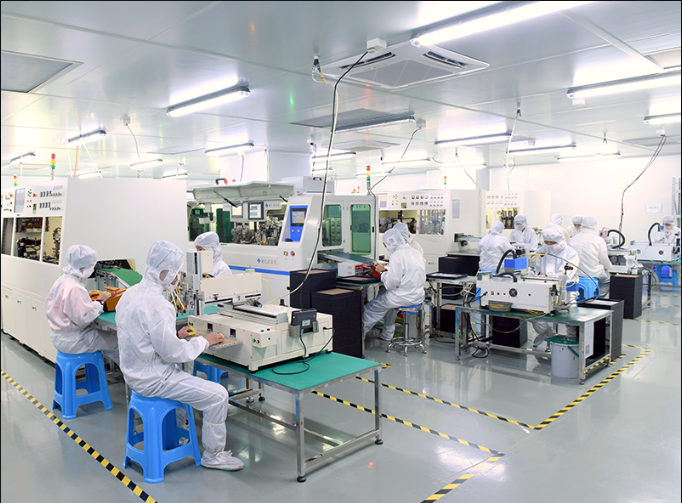1月12日 | SCITIC 论坛:探索智慧医疗新范式
时间:
1月12日 19:00-21:30
地点:
AI TIME论道B站
议程:
19:00-19:30
Guorong Wu:Discovering Novel Mechanisms for Alzheimer's Disease by Machine Learning
19:30-20:00
付杰:Understanding & Generating Natural (Human + Biological) Language and Beyond
20:00-20:30
何耀:浅谈纳米生物医学与人工智能结合在癌症精准检测中的应用
20:30-21:30
Panel :探索智慧医疗新范式
邀请嘉宾:

讲者简介
何耀:
复旦大学本科、博士,斯坦福大学、香港城市大学、中科院上海应用物理研究所访问学者/博士后。现任苏州大学教授,博士生导师,苏州市纳米生物医药重点实验室主任。国家杰出青年基金获得者,江苏省特聘教授,江苏省“333高层次人才培养工程”中青年领军人才,中国生物医学工程协会生物医学光子学分会副主任委员。
主要聚焦于发展生物医学影像和生化分析检测新方法,为重大疾病(如:癌症、眼部疾病)检测与治疗提供新工具。发表SCI 学术文章150余篇,SCI 论文引用 1.1万余次;获国家专利授权10余项;作为主编出版英文专著1部(出版社:施普林格)。相关成果获“江苏省科学技术奖”一等奖(排名第一)。
报告题目
浅谈纳米生物医学与人工智能结合在癌症精准检测中的应用
报告简介
纳米技术是多学科交叉融合形成的前沿领域,其发展将深刻影响现代科学技术的发展。纳米生物与医学是纳米技术的主要方向之一,有望为重大疾病的精准诊断与高效治疗提供有力的新工具与新方法。另一方面,人工智能在近几年发展迅速。随着人工神经网络模型的发展,人工智能技术可以对各类数据的数据特征和内在规律进行自动化的学习,以实现模式识别和预测评估等应用。在本次报告中,将简要介绍纳米技术及纳米生物医学的概念及重要性,进而结合报告人团队的近期研究进展,介绍利用纳米生物医学与人工智能,实现对癌症疾病从分子水平到组织水平的高灵敏分析检测。

讲者简介
Guorong Wu:
Dr. Wu is currently an Associate Professor at the Department of Psychiatry. He also holds a joint appointment at the Department of Computer Science, Statistics and Operations Research, UNC Neuroscience Center, and Carolina Institute of Developmental Disabilities. Dr. Wu is interested in developing advanced computational tools and data-driven methods to understand how the human brain works and discover high sensitivity and specificity biomarkers for neuro-diseases such as Alzheimer’s disease. His current research projects include quantifying brain development using 3D cellular resolution imaging, brain network analyses, and computer-assisted intervention/diagnosis focusing on Alzheimer’s disease.
报告题目
Discovering Novel Mechanisms for Alzheimer’s Disease by Machine Learning
Abstract
报告简介
We are now in the era of big data, which allows us to answer biomedical questions today that we couldn’t answer before. As a computer scientist, this is the most exciting time in my entire career. In the last ten years, I have been collaborating with neurology, neuroscience, genetics, and imaging experts to understand the pathophysiological mechanism of Alzheimer’s disease (AD) and how AD-related genes affect aging brains. Specifically, my lab is interested in establishing a neurobiological basis to quantify the structural/functional/behavioral difference across individuals and discover reliable and putative biomarkers that will allow us to come up with personalized therapy and treatment for individuals. In this talk, I would like to share my experience of integrating the domain knowledge of neuroscience into the development of imaging-AI based computational tools for automated image analysis, image interpretation, and outcome prediction, with a focus on imaging biomarkers and the computer-assisted early diagnostic engine for AD. At the end of this talk, I will demonstrate the preliminary results of recent research projects where we aim to understand the propagation mechanisms of tau aggregates.

讲者简介
付杰:
北京智源人工智能研究院研究员。博士毕业于新加坡国立大学,师从Tat-Seng Chua,在Quebec AI Institute (Mila)从事博士后研究,师从Yoshua Bengio和Chris Pal。在ICLR, ICML, NeurIPS, AAAI, IJCAI, ACL, ICCV, CoRL, EMNLP, MICCAI等人工智能领域顶级会议上发表论文30余篇,并获得ICLR 2021 Outstanding Paper Award。担任ICLR, ICML, NeurIPS, ACL, EMNLP, AAAI, IJCAI, CVPR, EACL等会议的评审委员会委员,组织NeurIPS NewInML Workshop 2022。
报告题目
Understanding & Generating Natural (Human + Biological) Language and Beyond
报告简介
For human natural language processing, it is hypothesized that a word's meaning can be derived from its context. Likewise, a biological sequence should also be analyzed in its context. The analogy between biological sequence modeling and human natural language processing has led to recent success in understanding and generating protein sequences using deep contextual language models taken from human natural language processing. My research in this area can be summarized in six words: understanding & generating natural (human + biological) language, a cross-disciplinary field, which is still in its infancy and has varieties of real-world applications. In this talk, I will share my recent progress in this direction. Going beyond, I will also talk about modular neural networks, which can greatly improve the sample-efficiency when fine-tuning the pre-trained natural language models.
国际科技信息中心:
国际科技信息中心是致力于打造数据与知识双轮驱动的认知智能平台,涵盖基础设施、科技文献、科技数据、科技情报、高端智库和智能服务等体系。
SCITIC论坛由国际科技信息中心倾力打造,围绕深圳“20+8”产业集群相关方向与研究领域,邀请国内外青年学者、科研与产业界专家进行技术前沿与产业趋势内容分享,旨在通过前沿领域输出和观点思辨来探讨各领域的未来发展以及互相之间的交叉与融合。
AI TIME:
AI TIME源起于2019年,旨在发扬科学思辨精神,邀请各界人士对人工智能理论、算法和场景应用的本质问题进行探索,加强思想碰撞,链接全球AI学者、行业专家和爱好者,希望以辩论的形式,探讨人工智能和人类未来之间的矛盾,探索人工智能领域的未来。
迄今为止,AI TIME已经邀请了900多位海内外讲者,举办了逾450场活动,超500万人次观看。
免责声明:市场有风险,选择需谨慎!此文仅供参考,不作买卖依据。
责任编辑:kj005
文章投诉热线:156 0057 2229 投诉邮箱:29132 36@qq.com












